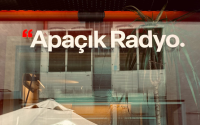Suzanne Goldenberg Friday May 10, 2002There can hardly be a Palestinian in the West Bank or Gaza who is not desperate for an overhaul of Yasser Arafat's corrupt and paralysed administration. But they want no part of the reforms being preached by President George Bush and Israel's prime minister, Ariel Sharon. "Of course, we need reform. This was a Palestinian demand long before it became an American or Israeli demand," Mustafa Barghouti, the director of the Union of Palestinian Medical Relief Committees and a long-time campaigner for democratic change, said yesterday. "The problem is they can not use it as an instrument of creating a dictatorship in Palestine. But if they want to apply the principles of reform and democracy, they are most welcome." When President Bush and Mr Sharon raised the notion of reforming the Palestinian Authority this week, they sketched out two main aims: sidelining Mr Arafat and encouraging the rise of a new leadership, and streamlining the 14 Palestinian police services to create a single professional force that would prevent attacks on Israel. Mr Barghouti, and others, have a different idea of change. In Ramallah last week, several hundred academics and professionals gathered to found a National People's Congress, which called for new elections for Palestinian leader, the legislative council, and local authorities. Although they support reforms of the police, which were left in disarray after Israel's West Bank offensive, they want them to focus on protecting Palestinians, not Israelis, and they want assurances that such a force will not operate above the law. However, elections for the Palestinians do not appear to be at the top of Mr Bush's agenda, and certainly not Mr Sharon's. Elections can not be held in the West Bank and Gaza as long as they are occupied by Israeli armour. To that end, the leftwing Democratic Front for the Liberation of Palestine (DFLP) has been lobbying European diplomats to press Israel to lift its siege on Palestinian towns. Mr Arafat, and the Palestinian legislative council, should have faced elections in 1999. The last local council elections were in 1976. Qais Abdel Karim, or Abu Layla as he is known, leader of the DFLP in Ramallah, said the US and Israel were "using the slogans of democracy and transparency to cover their real aim - that is to have a leadership and an authority that is more ready to follow their diktats." He added: "On the other hand, I would say a majority of the Palestinians think that after the earthquake witnessed in the past few weeks, it is about time for radical change in the structure of the PA and other established institutions to get rid of corruption and paralysis and to have a more efficient, more transparent, more democratic, and more unitarian setup." Israel's siege put the powerlessness of Mr Arafat's administration and police forces on cruel display, and deepened dissatisfaction with his corrupt and ineffectual regime. Mr Arafat's isolation also allowed two rival constellations within his Palestinian Authority to rise to greater prominence. Both revolve around security commanders: Mohammed Dahlan, the security chief in Gaza, and his West Bank counterpart, Jibril Rajoub. Mr Dahlan, and Mr Arafat's financial adviser, Mohammed Rashid, took a leading role in negotiations with Israel and the US. The other camp has gathered around Mr Rajoub and is widely believed to include the two most senior officials in the PA - Ahmed Queria, or Abu Ala, as he is generally known, and Mahmoud Abbas, or Abu Mazen. Abu Mazen has consistently endorsed demands for reform, and this week called for elections within six months. However, neither faction is strong enough to pose an immediate challenge. Palestinians also balk at the idea of removing Mr Arafat - precisely because that is what Israel and the US want. "It is not easy to convince the president," said Nabil Amr, who resigned as parliamentary affairs minister last week in order to put pressure on Mr Arafat to reshuffle his cabinet. "Yasser Arafat is not just a symbol in our lives, so we do hope he will understand that if he wants to be a real president, and not a symbolic president as the Americans are saying now, he must do many things. We need his role, and we must try with him to start."
http://www.guardian.co.uk/israel/Story/0,2763,713140,00.html






